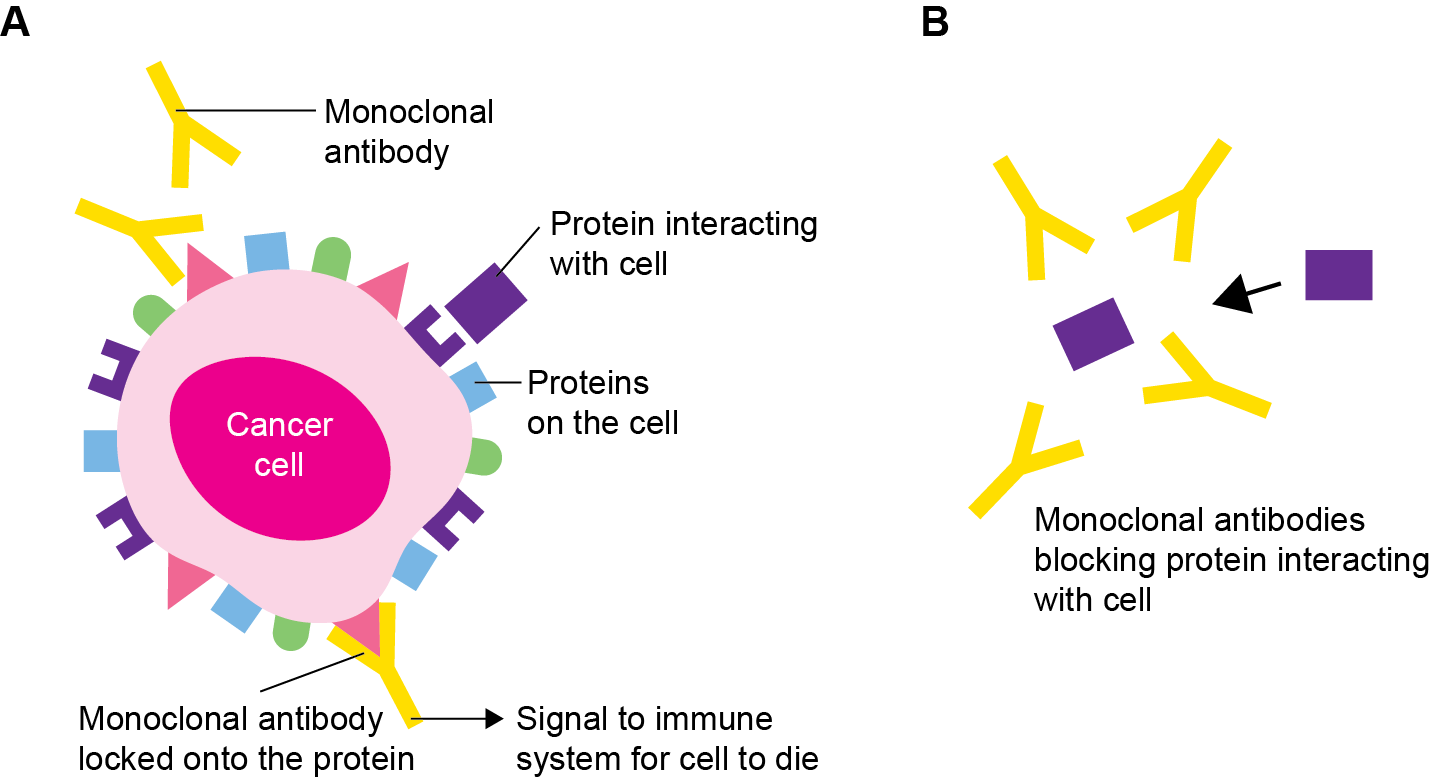Biologics
6. Example - Antibodies
Antibodies are specialised proteins that are produced by our immune system in response to an attack by germs and other foreign bodies called antigens. Monoclonal antibodies are biologic medicines that are designed to mimic the natural antibodies produced by the body.Monoclonal antibodies are much larger than other protein biologics, such as insulin and growth factors, and the manufacturing process is more complicated. They are produced in the laboratory and designed to bind specifically to other proteins in the body. Some of these proteins may be causing or worsening a disease, and a monoclonal antibody may be administered to block the actions of these proteins. In other scenarios, the monoclonal antibody may bind to a protein on a particular type of cell (such as a cancer cell), causing the cell to die or to be attacked by the body’s own immune system (Figure 1).

Figure 1. Monoclonal antibodies bind specifically to their target proteins. They can (a) signal for cells to be killed, in the case of cancer cells, or (b) prevent proteins from interacting with cells by binding to them. Adapted from (Link) Monoclonal antibodies | Targeted cancer drugs | Cancer Research UK
Monoclonal antibodies can also be combined with radioactive particles or other toxic medicines, and can deliver these agents to the diseased cells while sparing surrounding healthy cells.
Of the monoclonal antibodies in clinical development, most are designed for use in cancer and immunological disorders. Monoclonal antibodies are delivered by injection into a vein. The number and frequency of injections or infusions will depend on the monoclonal antibody given and the disease. Given that monoclonal antibodies act very specifically, side effects are limited (because there is less interaction with cells or organs that do not carry the target protein). Proteins involved in the disease, however, may also have important functions elsewhere in the body, and so each monoclonal antibody will have its own list of specific side effects. General side effects of monoclonal antibodies are related to allergic reactions to the medicine, and can cause symptoms including fever, rash and headache.